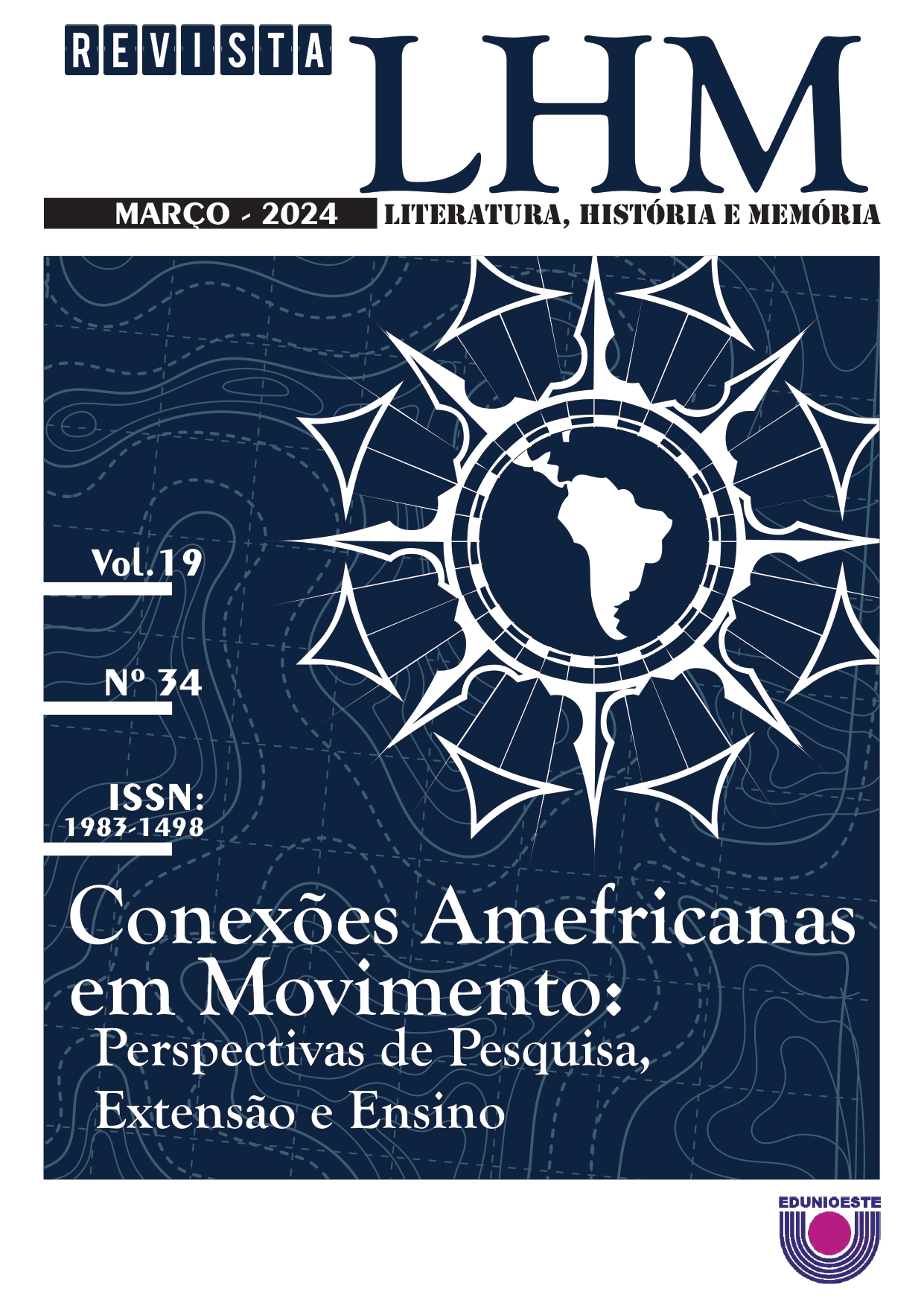THE MEETING OF THE DESERT WITH THE SEA
THE WORLD-LITERATURE IN THE NOVEL UN PAPILLON DANS LA CITÉ, BY GISÈLE PINEAU
DOI:
https://doi.org/10.48075/rlhm.v19i34.31862Abstract
In Un papillon dans la cité, Gisèle Pineau, from Guadeloupe, writes about the meeting of two children from seemingly different cultural backgrounds who end up meeting on the outskirts of Paris and building a strong friendship. Félicie, the protagonist of the novel and also its narrator, grows up in Guadeloupe, close to the sea, while Mohamed, although born in Paris, comes from a Tuareg family, a Berber people from the Sahara desert. This meeting will be essential for the construction of the identities of these characters who, in contact with the other, in the exercise of their otherness, end up discovering about themselves and transforming themselves in the relationship. Pineau's literature, therefore, is at the heart of the discussion on world-literature in French proposed by Michel Le Bris and Jean Rouaud (2007). However, believing that their definition of what would be a world-literature in French erases its own constitutive plurality, we also approach the discussion on literatures without a fixed abode by Ottmar Ette (2018) in order to think about the movements that Pineau's work can provide, like an archipelago literature that connects distant islands, like the sea and the desert.
Downloads
Published
How to Cite
Issue
Section
License

This work is licensed under a Creative Commons Attribution-NonCommercial-ShareAlike 4.0 International License.
Aviso de Direito Autoral Creative Commons
Política para Periódicos de Acesso Livre
Autores que publicam nesta revista concordam com os seguintes termos:
1. Autores mantém os direitos autorais e concedem à revista o direito de primeira publicação, com o trabalho simultaneamente licenciado sob a Licença Creative Commons Attribution que permite o compartilhamento do trabalho com reconhecimento da autoria e publicação inicial nesta revista.2. Autores têm autorização para assumir contratos adicionais separadamente, para distribuição não-exclusiva da versão do trabalho publicada nesta revista (ex.: publicar em repositório institucional ou como capítulo de livro), com reconhecimento de autoria e publicação inicial nesta revista.
3. Autores têm permissão e são estimulados a publicar e distribuir seu trabalho online (ex.: em repositórios institucionais ou na sua página pessoal) a qualquer ponto antes ou durante o processo editorial, já que isso pode gerar alterações produtivas, bem como aumentar o impacto e a citação do trabalho publicado (Veja O Efeito do Acesso Livre).
Licença Creative Commons
Esta obra está licenciada com uma Licença Creative Commons Atribuição-NãoComercial-CompartilhaIgual 4.0 Internacional, o que permite compartilhar, copiar, distribuir, exibir, reproduzir, a totalidade ou partes desde que não tenha objetivo comercial e sejam citados os autores e a fonte.


